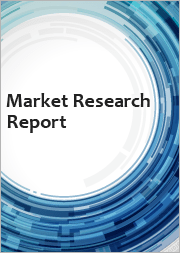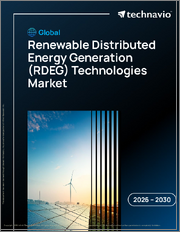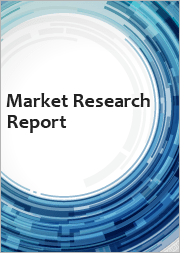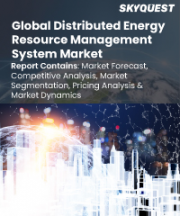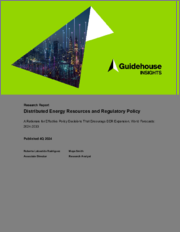
|
시장보고서
상품코드
1640751
분산형 에너지 자원과 규제 정책 : DER 확대를 촉진하는 효과적인 정책 결정의 근거, 세계 예측(2024-2033년)Distributed Energy Resources and Regulatory Policy: A Rationale for Effective Policy Decisions That Encourage DER Expansion, World Forecasts 2024-2033 |
||||||
분산형 에너지 자원(DER)은 기존 전력망에 물리적 또는 가상적으로 추가하여 전력망을 보다 효율적으로 작동시킬 수 있는 소규모 기술입니다. 기후변화가 가속화되고, 세계 에너지 수요가 증가하고, 석유와 천연가스가 부족해짐에 따라 전력 공급이 점점 더 어려워지고 있으며, DER을 사용하는 소비자는 비용을 낮추면서 전력망 용량을 확장할 수 있고, 경우에 따라서는 전력망에 에너지를 판매할 수도 있습니다. DER을 지속가능하고 모든 이해관계자에게 이익이 되도록 송전망에 통합하는 것은 어려운 일이지만, 정책과 정책은 도입에 따른 재정적 부담을 줄여 통합을 지원할 수 있습니다.
기존 시장에서는 사업자가 각 사업자의 가격을 책정했습니다. 현재 일부 국가에서는 에너지 시장을 분산화하여 대기업이 DER을 대용량으로 송전망에 연결할 수 있도록 하고 있습니다. 이러한 방식은 가격 설정의 유연성을 제공하지만, 에너지를 송전망에 다시 연결해야 하는 복잡성이 전력회사, 정부, 민간단체에 문제를 야기할 수 있기 때문에 가격 설정이 DER의 장벽이 될 수 있습니다.
분산형 에너지 자원과 규제 정책에 대해 조사했으며, 시장 개요와 함께 경쟁 상황, 시장 예측, 지역별 동향 등을 정리하여 전해드립니다.
목차
제1장 주요 요약
제2장 시장 문제
- 소개
- 성장 촉진요인
- 지역별 개요
- 북미
- 유럽
- 아시아태평양
- 라틴아메리카
- 중동 및 아프리카
- 경쟁을 격화시키는 규제
- 경제적 인센티브를 높이는 규제
- 그리드 분산화와 확장
- 성장 억제요인
- 새로운 시스템을 도입하는 비용
- 인프라의 부족
- 규모 경제
제3장 산업 밸류체인
- 경쟁 구도
- 규제가 밸류체인에 미치는 영향
- 주요 기업
제4장 시장 예측
- 예측 소개
- 가정과 조사 방법
- 예측의 정의
- 세계의 예측
- 지역별 예측
- 북미
- 유럽
- 아시아태평양
- 라틴아메리카
- 중동 및 아프리카
제5장 결론과 제안
제6장 두문자어와 약어 리스트
제7장 목차
제8장 도표
제9장 조사 범위, 정보 출처와 조사 방법, 주석
ksm 25.02.17Policy is an important market driver for distributed energy resources (DER), small scale technologies that when added to the traditional grid physically or virtually can make it work more efficiently. As climate change accelerates, global energy demand rises, and oil and natural gas become scarcer, supplying electricity is increasingly difficult. Consumers using DER can expand the grid's capacity while lowering their costs, and sometimes, they can even sell energy back to the grid. Although integrating DER into the grid so that they are sustainable and beneficial to all stakeholders is challenging, policy and regulation can help integration by reducing the financial burden of implementation.
In the traditional market, operators set prices for each provider. Now, some countries have decentralized their energy markets so that larger companies can connect DER to the grid in larger capacities. While this practice creates pricing flexibility, the complexities of selling energy back to the grid create issues for utilities, governments, and private entities, so pricing can be a barrier to DER.
Table of Contents
1. Executive Summary
- 1.1 Introduction
- 1.2 Industry Value Chain
- 1.3 Market Forecasts
2. Market Issues
- 2.1 Introduction
- 2.2 Drivers
- 2.2.1 Regional Summaries
- 2.2.2 North America
- 2.2.2.1 California
- 2.2.2.2 Texas
- 2.2.2.3 New York
- 2.2.2.4 Georgia
- 2.2.2.5 Hawaii
- 2.2.3 Europe
- 2.2.3.1 Spain
- 2.2.3.2 France
- 2.2.3.3 Germany
- 2.2.3.4 Italy
- 2.2.3.5 Netherlands
- 2.2.3.6 UK
- 2.2.4 Asia Pacific
- 2.2.4.1 Japan
- 2.2.4.2 China
- 2.2.4.3 Australia
- 2.2.5 Latin America
- 2.2.5.1 Mexico
- 2.2.5.2 Chile
- 2.2.5.3 Brazil
- 2.2.6 Middle East & Africa
- 2.2.7 Regulations That Increase Competition
- 2.2.8 Regulations That Enhance Financial Incentives
- 2.2.9 Decentralizing and Expanding the Grid
- 2.3 Barriers
- 2.3.1 The Cost of Implementing New Systems
- 2.3.2 Lack of Infrastructure
- 2.3.3 Economies of Scale
3. Industry Value Chain
- 3.1 Competitive Landscape
- 3.1.1 Impact of Regulation on the Value Chain
- 3.1.2 Key Players
- 3.1.2.1 Importance of International Expansion
4. Market Forecasts
- 4.1 Forecast Introduction
- 4.2 Assumptions and Methodology
- 4.3 Forecast Definitions
- 4.4 Global Forecasts
- 4.5 Regional Forecasts
- 4.5.1 North America
- 4.5.2 Europe
- 4.5.3 Asia Pacific
- 4.5.4 Latin America
- 4.5.5 Middle East & Africa
5. Conclusions and Recommendations
- 5.1 Three Big Takeaways
- 5.2 Recommendations
- 5.2.1 DER Aggregators
- 5.2.2 DER Grid Operators
- 5.2.3 DER Regulators/Market Operators






